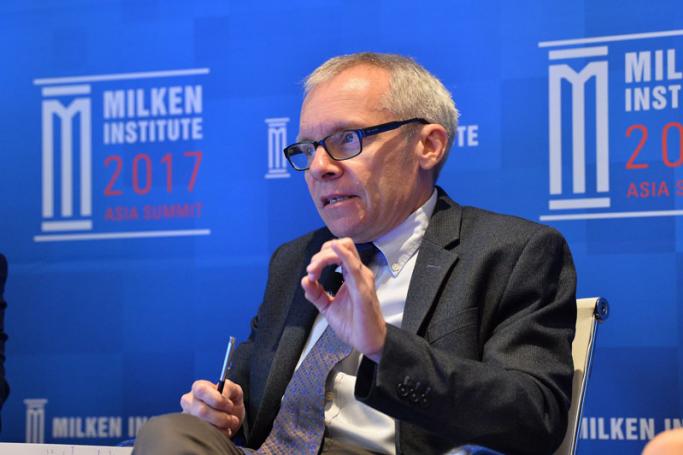What does Myanmar, a country perplexed by poverty, unemployment, ethnic conflicts and recently the Rohingya refugee crisis, need the most? Development. Absolutely. The answer is reaffirmed by the words of the country's de facto leader Aung San Suu Kyi, who insists that "investments would actually help make the situation better."
However, it seems Western media outlets, as well as those who "care about" Myanmar, have discussed little about investing in or bringing technologies to the country. On the contrary, they have further intensified their harsh criticisms against Myanmar, as if tough rhetoric is the solution to developmental problems - the main reason behind Myanmar's ethnic conflicts.
What has the West done to facilitate Myanmar's development? "NATO [No Action, Talk Only,]" Sean Turnell, special economic consultant to Suu Kyi reportedly said, underscoring the country's history of unfulfilled potential.
Statistics from Myanmar's Directorate of Investment and Company Administration suggest that, while China has made up nearly a third of Myanmar's foreign direct investment since the 2014-15 financial year, the US only contributed 0.4 percent of the total.
The Southeast Asian nation began its transition from military rule to democracy with the swearing in of the first democratically-elected government in 2016 and has been striving to meet Western standards in politics and diplomacy. But these efforts have not been awarded with Western investments.
Western governments are strong advocates when it comes to human rights causes, from which they also score moral points. However, it seems they don't plan to put in real investment, which is urgently needed for Myanmar.
Earlier, the West accused China of using a debt trap to lure Myanmar, Sri Lanka and other vulnerable countries. This was immediately dismissed by Myanmese security adviser Thaung Tun. "What China is doing is prosperous neighbor policy and we are all for it," he said, stressing his confidence in the win-win cooperation between the two countries.
China's contributions to Myanmar's development cannot be underestimated. Its Belt and Road initiative aims to aid connectivity and stimulate trade by investments in infrastructure throughout the region. China and Myanmar are currently in talks to carry out a deep-sea port in Kyaukpyu as part of the planned special economic zone. This is undeniably a boon to regional development. Despite difficulties, the two nations have been actively negotiating for a solution satisfactory to both.
With abundant oil and gas reserves, as well as a large youthful population, Myanmar has huge potential for manufacturing industry and is a strong investment proposition for foreign firms. It is high time that the international community cooperate and create more opportunities for the country's development. Instead of lecturing others, the West had better participate in this process and facilitate Myanmar's development via concrete actions.
Courtesy Global Times
You are viewing the old site.
Please update your bookmark to https://eng.mizzima.com.
Mizzima Weekly Magazine Issue...
14 December 2023
Spring Revolution Daily News f...
13 December 2023
New UK Burma sanctions welcome...
13 December 2023
Spring Revolution Daily News f...
12 December 2023
Spring Revolution Daily News f...
11 December 2023
Spring Revolution Daily News f...
08 December 2023
Spring Revolution Daily News f...
07 December 2023
Diaspora journalists increasin...
07 December 2023
Philippines' Duterte condemns South China Sea flare-up












